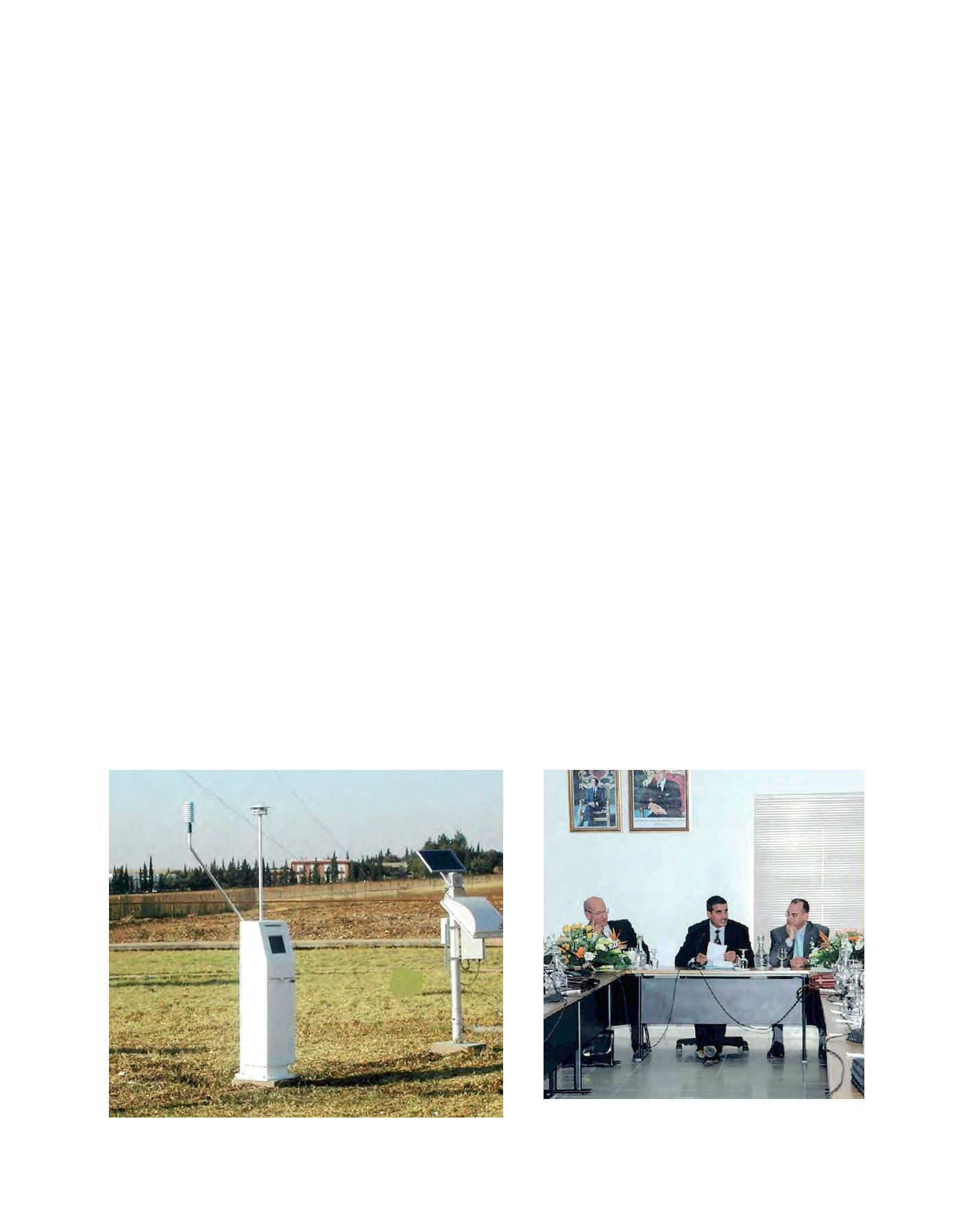

[
] 227
R
isk
G
overnance
and
M
anagement
The number of reporting stations in key agricultural
areas, instrumentation standards and maintenance,
data collection and processing methods, data standards
and quality control procedures, and human resources
are all factors relating to input requirements. Thus, the
creation of the two centres was supplemented by the
installation of a number of automatic weather stations
providing real-time data. Also an expert team has been
trained for the development of agro-meteorological
models, tools and products.
The service involves converting input data into infor-
mation that can be packaged for delivery in a form that
adds value to an existing knowledge base. Additional tools
– such as geographic information systems technology,
mathematical models, and remotely-sensed observations
– provide resource enhancements that can convey value-
added information for the decision-making process.
The agro-meteorological information produced
includes:
• Observation data
• General forecast bulletins
• Daily bulletins on the impact of extreme events on
agricultural production
• Daily responses to farmer requests
• Warning bulletin.
Seasonal forecasting system
DMN has explored both statistical and dynamical
approaches to making seasonal predictions of precipi-
tation in Morocco. This has been enacted through two
major projects – Al Moubarak (based on statistical
models) and El Masifa (based on both dynamical and
statistical models).
The main objective of such long-range prediction is
to implement a procedure that generates information
that end-users consider helpful in decision-making.
towns and cities which, in turn, can lead to serious health problems.
For example, air pollution is increasingly cited as the main cause
of lung conditions such as asthma – compared with 20 years ago,
twice as many people suffer from asthma today.
To help control the evolution of the air quality in Morocco, DMN
has installed 21 stations for measuring air quality, a mobile labora-
tory and three pollen grains sensors. Furthermore, in Casablanca,
Fes and Marrakech it has installed two stratospheric ozone sensors
and two stations for measuring atmospheric pollution.
Agriculture
As a direct result of establishing a dialogue with users, DMN
has created two agro-meteorological centres in Beni Mellal and
Taroudant, and developed a tool to aid decision making in the agri-
culture domain. The purpose of this application is to make users
aware of the potential benefits that farmers can gain from improv-
ing efficiency and ensuring the sustainability of farm management.
Farmers should aim to protect and ensure the continuing health of
crops, livestock, and the environment to increase their yield and the
market value of their crops, as well as to solve operational problems.
A communication mechanism has been established to explain the
purpose of the agro-meteorological centres. Flyers were produced in
Arabic (the most widely understood language in Morocco) detailing
basic information about the centres – covering their objectives, tools
(computing facilities, information systems, observation instruments),
products, dissemination techniques and policies on user interaction.
The primary objective of the centres is to provide farmers with
information (observations, model outputs) that enables them to
improve the efficiency of various agricultural practices.
The information should also enable farmers to limit and reduce
the adverse impacts of extreme climate events on agricultural
production.
Input requirements
Input requirements refer to the quantity, quality and timeliness of
data that are available for the preparation of observational products.
Timely collection of climate data today is vital for accurate seasonal forecasts tomorrow
Climate forecasters must engage openly with all sectors of society to
increase the effective use of seasonal forecasts
Image: DMN
Image: DMN
















